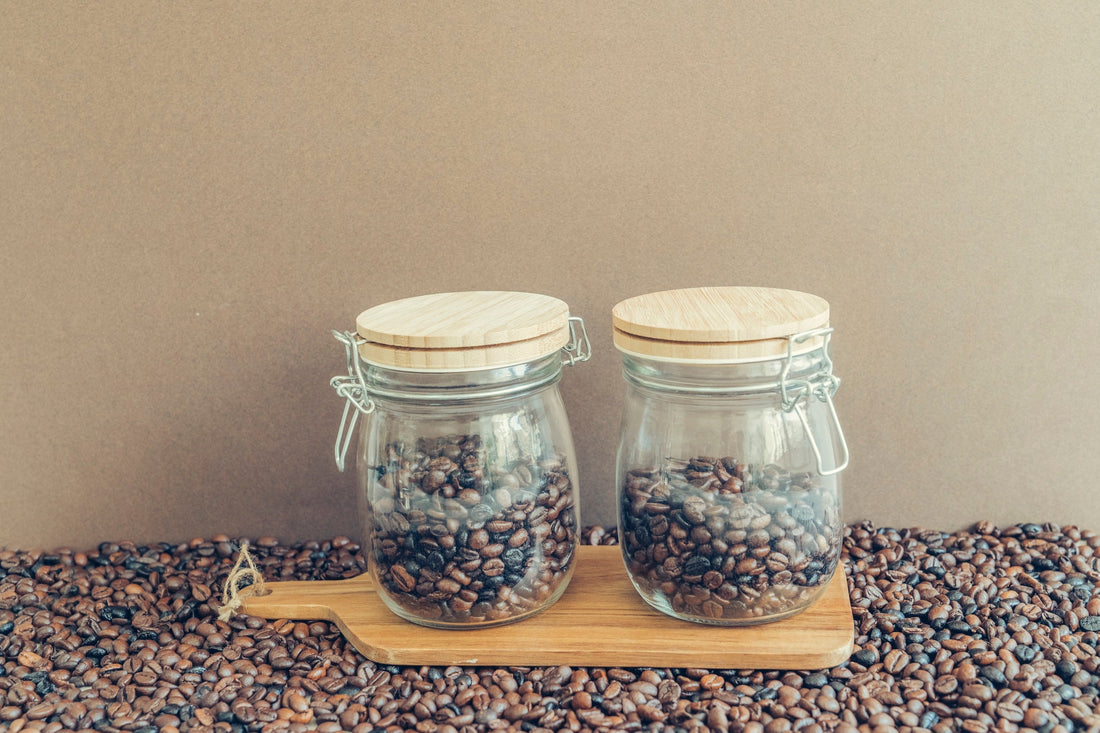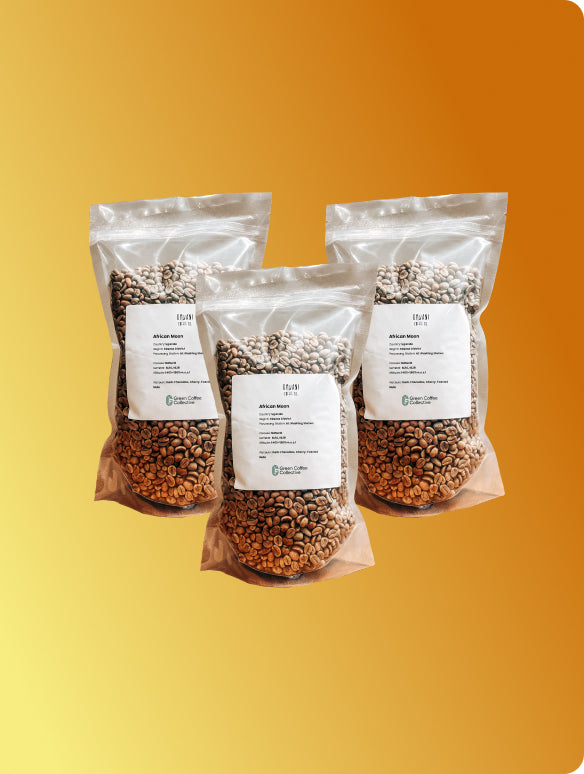Welcome to the ultimate guide on storing your coffee post-roast! As a coffee lover, you know that freshness is key to achieving the perfect cup. The journey from bean to brew is delicate, with the post-roasting phase being crucial for flavour preservation. This knowledge-packed guide will explore effective storage methods, from using airtight containers to the debate on freezing coffee beans, ensuring your coffee remains as vibrant as its first roast.
Understanding Coffee Degassing: Why Resting Your Beans Matters
After roasting your coffee, it’s essential to let your beans rest—a process known as degassing. During roasting, coffee beans release carbon dioxide (CO2), and much of this gas remains trapped within the beans immediately after roasting. Degassing allows this gas to escape gradually, which is crucial for brewing, particularly with methods like espresso.
For espresso, it’s best to wait four to six days, or even up to 10-14 days, for the beans to degas fully. Filter coffee has a bit more leeway, usually requiring just three to four days of resting. However, a minimum of 12 hours of resting is recommended before brewing any coffee to avoid unpleasant flavors.

Key Factors That Impact the Freshness of Roasted Coffee
Maintaining the freshness of roasted coffee requires careful attention to several environmental factors. Let’s take a closer look at what affects your coffee’s quality post-roast:
- Air Exposure: Oxygen is one of coffee’s greatest enemies. It starts the oxidation process, which can degrade the essential oils in the beans, leading to a loss of flavour. This process can begin as soon as two weeks after roasting if the beans aren’t stored properly.
- Moisture: Coffee beans are highly absorbent and can easily take on moisture from their surroundings, which can lead to musty or mouldy smells and flavours.
- Temperature: Extreme temperatures can accelerate the aging process of coffee beans. Ideally, beans should be stored in a cool environment to maintain their freshness.
- Light Exposure: Light, particularly sunlight, can cause coffee beans to deteriorate faster. Beans should be kept in a dark place to preserve their flavour.
Best Practices for Storing Roasted Coffee Beans
To keep your coffee beans fresh and flavourful, follow these best practices for storage:
- Store in a Cool, Dark Place: Keep your coffee beans in a pantry or cupboard away from heat sources like ovens and direct sunlight. The ideal spot is cool, dark, and dry.
- Use Airtight Containers: Invest in containers that seal tightly to prevent air from interacting with the beans. Containers with one-way valves are particularly effective as they allow CO2 to escape while keeping air out.
- Avoid Clear Containers: While coffee beans can be visually appealing, clear containers allow light to penetrate, which can compromise the taste of your coffee. Opt for opaque containers instead.
- Limit Freezing: Freezing coffee beans can extend their shelf life, but it should be done carefully. Always use truly airtight containers to prevent moisture and odors from affecting the beans. Thaw beans at room temperature while still sealed to avoid condensation.
- Buy in Small Batches: To ensure the freshest coffee, purchase smaller amounts of beans more frequently. This way, you can always enjoy coffee at its peak flavor.
How Long Can Coffee Beans Last in an Airtight Container?
When stored in an airtight container, coffee beans can stay fresh for up to a month if kept in a cool, dark place. However, several factors influence how long the beans will retain their quality:
- Bean Quality: High-quality beans, especially specialty-grade, tend to retain their freshness longer due to their robust structure and oil content.
- Container Material: The material of your storage container matters. Glass, ceramic, or non-reactive metals are generally preferred as they don’t impart unwanted flavors or allow UV light to penetrate.
- Light Exposure and Opening Frequency: Each time you open your container, air and light can enter, accelerating the degradation process. Try to minimize exposure by keeping your containers sealed and only opening them when necessary.
Recognising when coffee beans have gone stale is crucial. Signs include a dull aroma, a brittle texture, or an oily and discoloured surface. If your beans exhibit these characteristics, they’re likely past their prime.
The Cold Debate: Should You Freeze Your Roasted Coffee Beans?
Freezing coffee beans is a topic of much debate among coffee enthusiasts. While freezing can extend the shelf life of your beans, it must be done with care to avoid compromising their flavour.
Advantages of Freezing:
- Extended Shelf Life: Freezing can keep coffee beans fresh for up to six months, making it a good option for those who buy in bulk.
- Preserving Freshness: Properly frozen coffee beans retain much of their aroma and flavour, ensuring a satisfying brew even months later.
Considerations for Freezing:
- Pre-Freezing Preparation: Allow beans to degas for about 48 hours after roasting before freezing. This ensures they’re in the best possible condition for long-term storage.
- Use of Specialised Containers: Invest in containers specifically designed for freezing, which provide better protection against moisture and odours.
When you’re ready to use your frozen beans, thaw them to room temperature while still sealed to prevent condensation. Some even recommend grinding the beans while they’re still cold to preserve their flavour integrity.
Bringing It All Together: The Ultimate Guide to Keeping Roasted Coffee Fresh
In this guide, we’ve covered everything you need to know about storing your roasted coffee beans. From understanding the importance of degassing to choosing the right storage containers, these tips will help you keep your coffee fresh and flavourful for as long as possible. Whether you decide to store your beans at room temperature or freeze them, the key is to protect them from air, moisture, light, and extreme temperatures. By following these best practices, you can ensure that every cup of coffee you brew is as delicious as the first.


